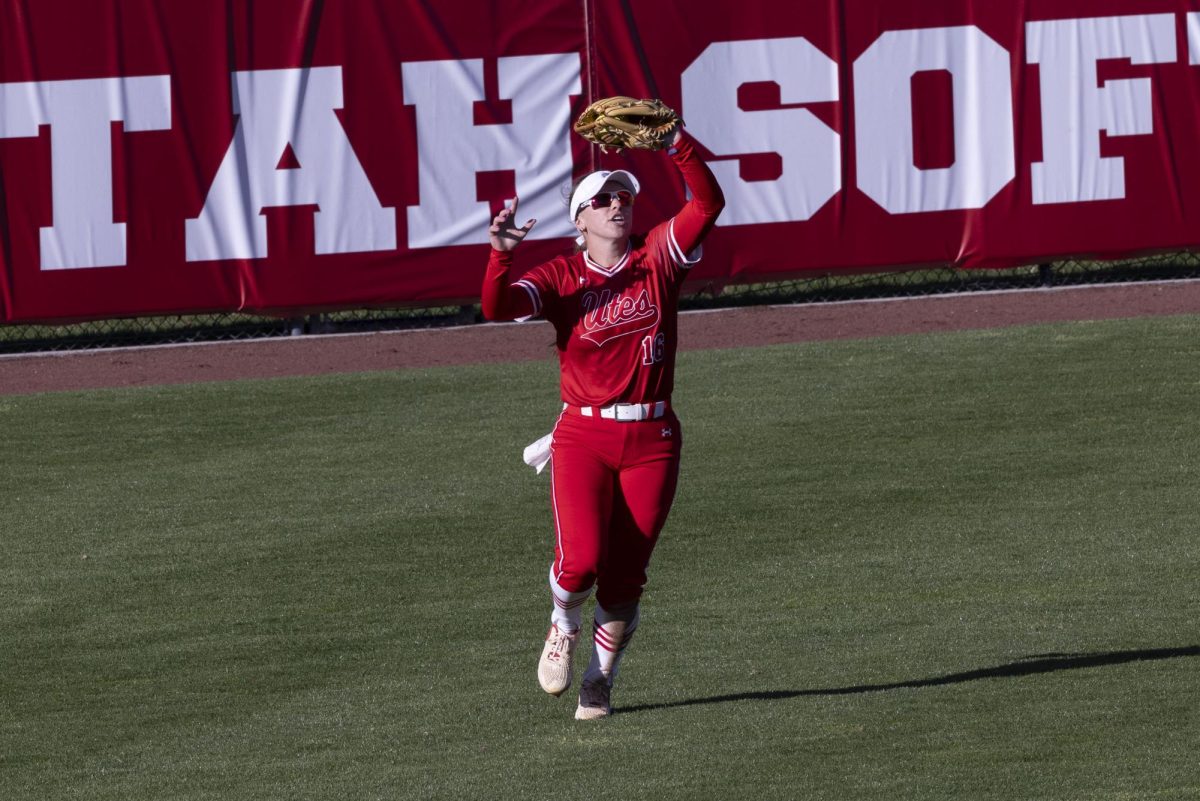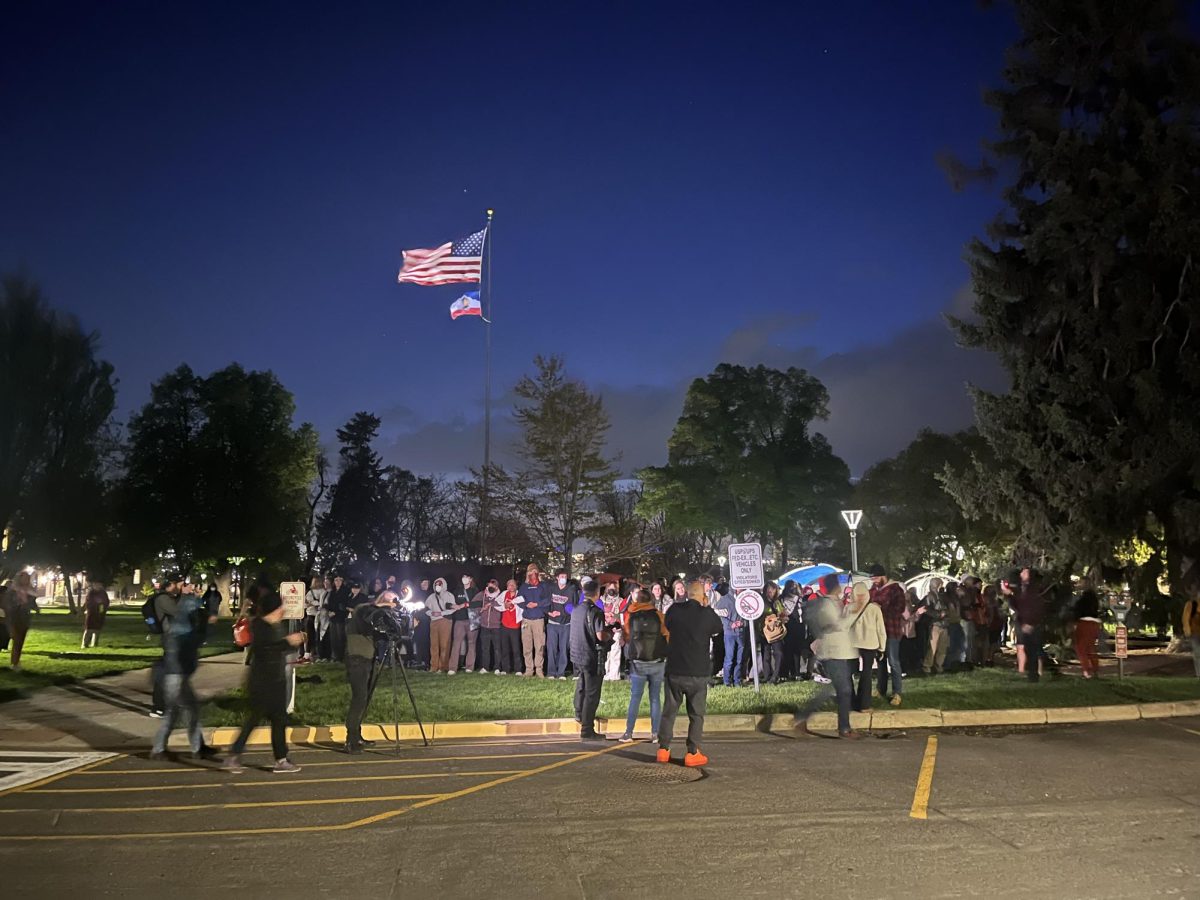Who knew hatred could be such a financially sound habit?
That’s the case with the BYU-Utah football rivalry. The schools, stadium vendors and retail stores reap the benefits when passionate fans invest in supporting their team.
And it all starts with ticket sales. Whether the contest is held in Salt Lake City or Provo, it sells out months in advance. Sean Farrell, an assistant ticket manager at Rice-Eccles Stadium, said that when BYU visits Utah, the game is sold out in June.
“(The sale of tickets) usually never gets to the general public,” Farrell said.
Season-ticket holders and Crimson Club members have first access to the tickets through a pre-order system. A few thousand student tickets are set aside, which are free.
Normal ticket prices at Rice-Eccles Stadium are $15, $25 and $40 depending on the seat. When the Cougars come to town, the same seats sell for $35, $45 and $60.
But the price hike is not just a practice at the University of Utah.
LaVell Edwards Stadium’s end zone and sideline tickets that normally sell for $18 and $33, respectively, jump to $30 and $50 for a game versus Utah.
“We price a couple of games differently for premium tickets,” said Duff Tittle, BYU’s associate athletic director.
Those premium games this season were against Arizona and Utah. Tittle said the Utah game was sold out well before the season started.
So just how much do the universities earn when their archrival visits? Utah Associate Athletics Director of Internal Operations Peter Oliszczak has the answer.
The 2006 game between the rivals in Salt Lake City produced $863,908 in revenue for the U. A Sept. 15 matchup against No. 11 UCLA earlier this season at Rice-Eccles Stadium fell more than $100,000 short of that mark.
Even though the ticket offices and the universities rake in tons of money because of the rivalry, the actual week of the “Holy War” doesn’t see too much chaos.
“Things don’t really get busier around here because the game is sold out so early,” Oliszczak said.
The same cannot be said for retailers. The University Campus Store at the U and the BYU Bookstore welcome a hectic week of sales when the rivalry comes to town.
“Our sales are usually about double that week than if we play any other team,” said Earl Clegg, director of the U’s campus store.
Having worked there for 21 years, Clegg has seen different coaches influence the store’s sales. Urban Meyer, Clegg said, “brought in a whole new era.”
Included in that era was an increase in stadium vendors. The campus store features four game-day locations, called Red Zones. It also places a trailer in the Olympic Plaza and another in the tailgating area.
Last season’s battle with BYU brought in a 25 percent higher paycheck for the campus store than this year’s brawl with then-No. 11 UCLA.
Dave Smith, manager of general merchandise at the BYU Bookstore, agrees that a home date for the rivalry game brings in tons of cash.
“If it’s not a home game, there isn’t much of a change,” Smith said. “But if it’s a home game, then we definitely see an increase.”
Smith, who has worked at the bookstore for 19 years, has watched the rivalry grow and sales grow with it.
“Sales have gone up, but I don’t think it’s because of any commercialization,” Smith said. “I think it’s because fans’ enthusiasm has increased.”
With the rivalry maintaining intensity, the benefits have trickled down to retail stores such as Fanzz. Brian Park, manager of Fanzz at University Mall in Orem, said BYU gear is the store’s top-selling apparel. But Utah is in the top five, even in the middle of enemy territory.
BYU has already won financially, even if the team that takes the field loses. The same could be said for the Utes during their loss to the Cougars last season. Any day that has revenues of nearly $900,000 is a good day, no matter the outcome.










